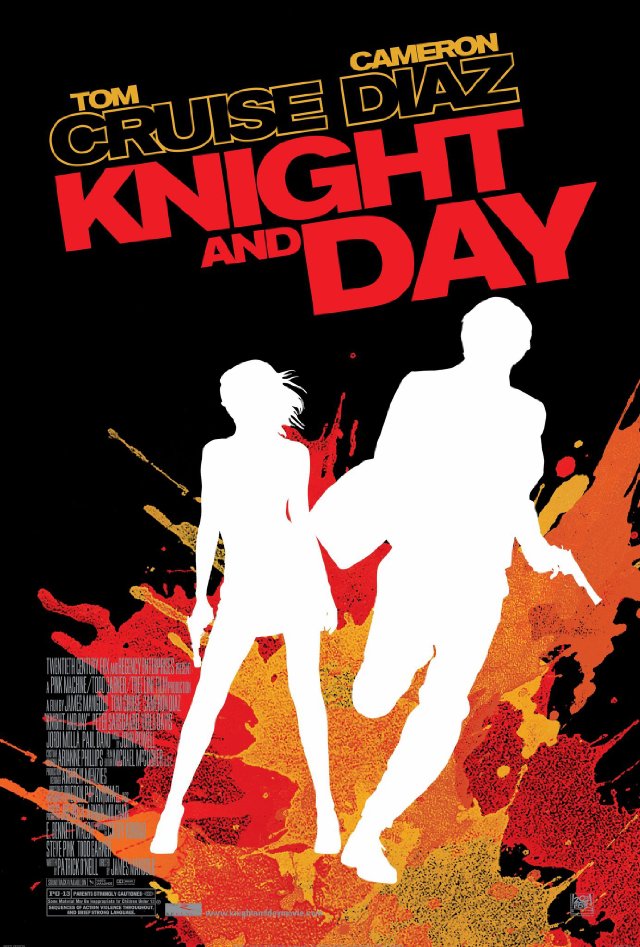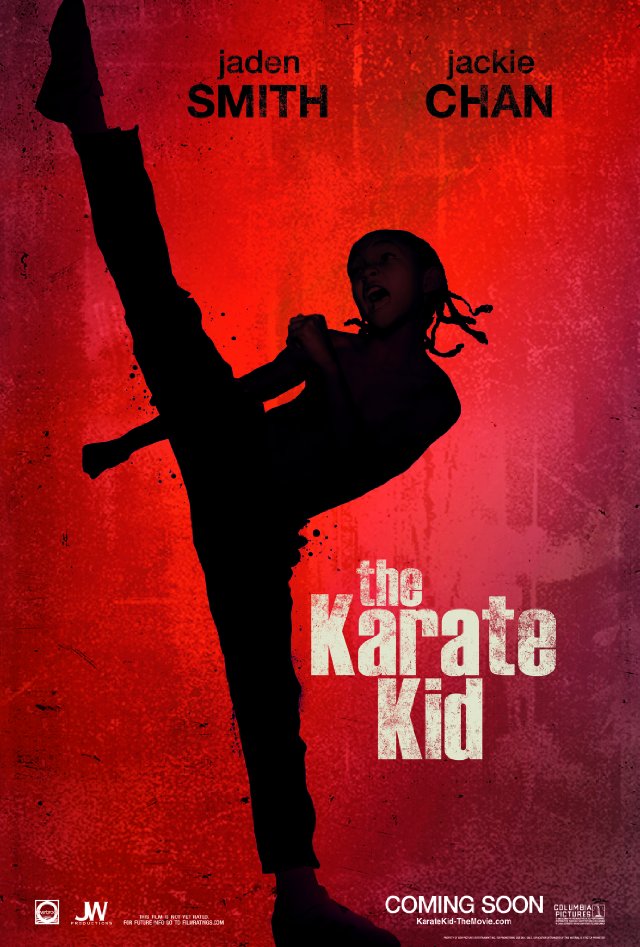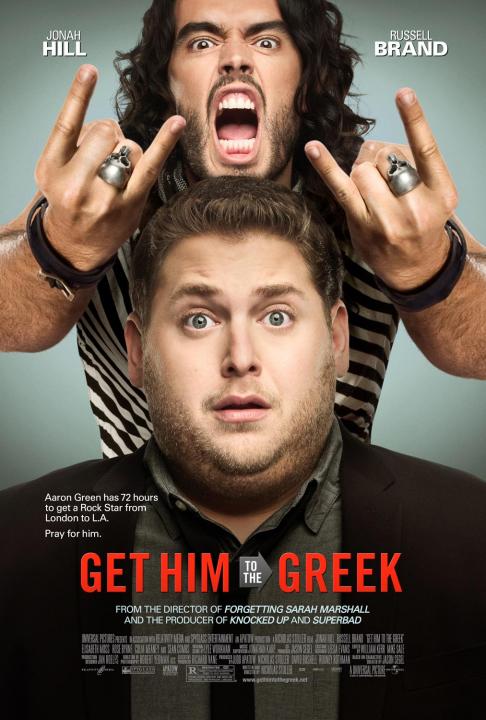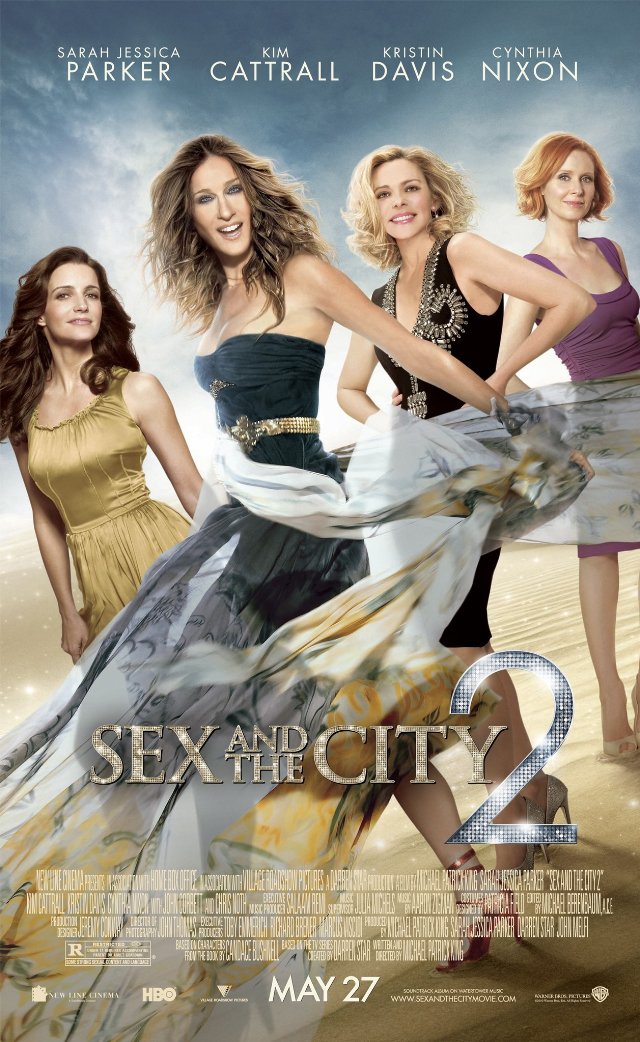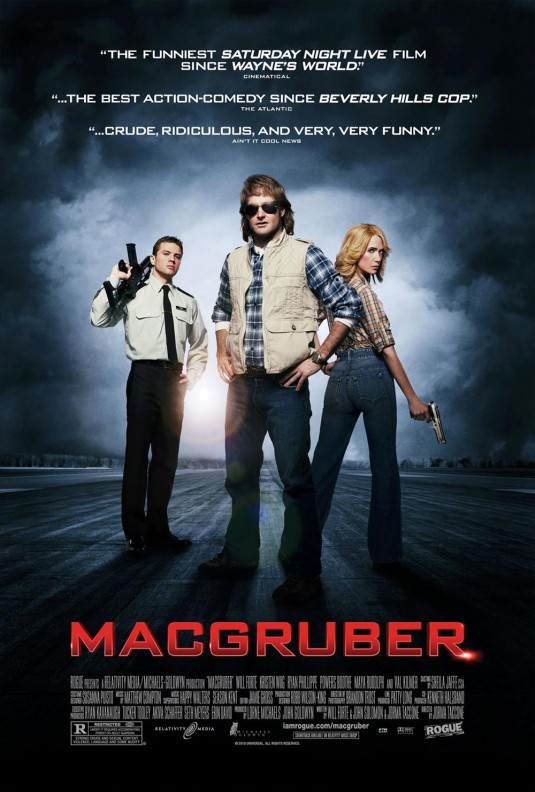Status: In theaters (opened 6/23/10)
Directed By: James Mangold
Written By: Patrick O’Neill
Cinematographer: Phedon Papamichael
Starring: Tom Cruise, Cameron Diaz
I’ve realized that I’m more or less a sucker for this type of movie: big-budget, well-written, highly polished, international/globe-trotting/political intrigue/espionage stories, with big-name stars, helmed by an accomplished director. Knight and Day is but the newest in this line, and while it’s definitely not extremely original and/or unique among this type of film, it certainly satisfies for what it is.
What surprises me most about this movie is that I’ve never really considered myself to be a big fan of either of its stars, but I found myself liking them both quite a bit here. Tom Cruise plays an extremely likable government agent named Roy Miller, who goes out of his way to protect the innocent June Havens (Cameron Diaz) when she gets mixed up in his operation. Even when the script attempts to introduce doubt as to Roy’s intentions, though, it’s so obvious that he’s exactly who he says he is—the good guy—that this is one attempt at a twist that’s unsuccessful. June, likewise, is a character who’s almost impossible not to root for. Diaz plays her as a genuinely friendly person, not the naive, bumbling girlie-girl I’d assumed I’d encounter. She’s willing to get her hands dirty, and that only adds to the fun.
The plot is basically what you’d expect, beginning with a mix-up that leads to Roy and June getting stuck with each other for a while. It twists and turns and surprises as it should, though without any crazy, hard-to-swallow reversals. The one thing that annoyed me was how Knight and Day seems to ignore the realities of time. It’s hard to know how many days have passed at a couple of points in the film, and this wouldn’t seem like a big issue if they hadn’t previously mentioned specific deadlines that had to be met. It’s one of those things that’s sort of glossed over, though, and obviously we’re not supposed to worry about such things; when you’re being whisked around from place to place, action sequence to action sequence, you’re just supposed to enjoy the ride.
The most recent film that operated in much the same way was The International, one that I enjoyed equally as much as this one. There’re also shades of The Saint thrown in here, with Paul Dano (from There Will Be Blood) factoring in as a wunderkind of sorts who alternately provides and functions as the always-needed MacGuffin. There’s some influence from North by Northwest here, too, as so many of these types of films exhibit.
Director James Mangold already has several interesting films under his belt, most recently Walk the Line (which he also co-wrote) and 2007’s excellent 3:10 to Yuma, and Knight and Day shows the same level of polish as those productions. It’s another interesting addition to an already-varied resume that will be exciting to watch continue to develop. I don’t have a ton to say about this one, other than it is what it is, and sometimes that’s exactly what you’re looking for. Just don’t expect some profound explanation for the title, because that’s the one aspect of this movie that seems to have been completely half-assed. Particularly amongst the other movies that’ve been coming out this summer, though, it doesn’t exactly have to hit it out of the park in order to satisfy.
Comments Off on Big Fun Action
Status: In theaters (opened 6/11/10)
Directed By: Harald Zwart
Written By: Christopher Murphey
Cinematographer: Roger Pratt
Starring: Jaden Smith, Jackie Chan, Taraji P. Henson, Wen Wen Han
Save for Gus Van Sant’s extremely literal Psycho remake, 2010’s version of The Karate Kid is about as close as I’ve seen to a completely straightforward redo of a film that really never asked to be redone in the first place. The 1984 original is available to watch instantly on Netflix, and having recently done so, I’m pleased to say that the classic I remember from my youth still holds up quite well. If you recall that movie—hopefully fondly, as I do—you’ll recognize not only several sequences of scene-by-scene reconstruction here, but also a lot of line-by-line dialogue as well. This only serves to amplify my stock questions I ask when encountering one of these: what’s the aim in remaking it? What new is being brought to the table? And while I don’t have a positive response to the second question, at least in this case the answer to the first is quite obvious: Jaden Smith is a prince in Hollywood, and his parents have more money than the Pope, so they bought their son a cute little movie franchise of his very own.
The good news is that young Jaden is every bit as talented and as likable as his father. He’s a terrific young actor, who I recall as one of the highlights of the Day the Earth Stood Still remake—hopefully remakes don’t become a long-term pattern for him, though. He’s cute and lovable and charming here, and shows that at the tender age of 11 he’s already able to carry a movie on his own (not to mention that he appears to actually know a thing or two about whatever kind of martial art is being depicted in this film—more about that in a bit). He’s partnered here by the equally likable Jackie Chan, who doesn’t play Mr. Miyagi so much as he plays an old and gruff version of Jackie Chan, who happens to be named Mr. Han. The two meet in the exact same manner as Daniel-san and Miyagi: Smith’s character (Dre) moves with his single mother (Taraji P. Henson) into an apartment complex where Han is the maintenance man. Instead of relocating from New Jersey to Los Angeles, though, this transition is a much larger one: the mother has been transfered by the car factory she worked at in Detroit to their location in China. It’s an attempt to add some topicality to the movie, I suppose, but does that actually happen? It seems to me that the purpose of moving operations to China (saving money on labor) is pretty much offset if you have to pay to relocate American employees there.
At any rate, there’s really no sense in summarizing the plot, because it’s exactly the same as the original movie, with but a few key differences. First is that since this film takes place in China, it’s actually kung fu that “Xiao Dre” learns; I’m certainly not claiming to be an expert on such matters, but I’m pretty sure calling this movie The Karate Kid is like making a movie about a guy who wears kilts and plays bagpipes and calling it The Irishman. (The working title, as I recall, was actually The Kung Fu Kid, which would be more appropriate, but I guess it was decided that its heritage should be made more apparent—as if word-for-word and scene-by-scene reconstruction weren’t sufficient enough.)
So what else is changed from the original film? Very little. The paint-the-fence / wax-the-car / paint-the-house / sand-the-deck training is collapsed into a single routine: hang up a jacket, put it on, set it on the floor, and pick it up again. This is actually a bit welcome, as we know what’s going on (assuming we’ve seen the previous Karate Kid), so there’s no point in dragging things out, as the joke’s already ruined before it’s even been set up. Mr. Han, also, doesn’t have quite as well-told a backstory as Miyagi did, though Chan does get a chance to deliver his own take on the drunken-breakdown scene, and he does so admirably.
The one aspect that’s really different about this movie, however, is the most glaring issue I have with it: here the protagonist is not a high school kid, dealing with bullies who are testosterone-fueled pubescent boys, and falling for a just-blossoming Elisabeth Shue. Instead, he’s a young pre-teen, and this taints nearly every plot point in the movie. The rival kids who train under a ruthless master are now about 12 years old, making both their training and their attitudes much more disturbing. When Han saves Dre from an attack, it’s a 50-something man beating up on children, not punk-ass teenagers. And when Dre develops a love interest, played by young Wen Wen Han (whose existence IMDB appears not to acknowledge), it has a totally different slant because it’s just puppy love, without all of the complications and standard issues we’re used to seeing in teenage romances. I try not to think in these terms too often, but it’s pretty obvious that this is a movie aimed at children, and that too makes me wonder about the appropriateness of it all, even beyond my normal knee-jerk rejection of remakes. And so despite my positive opinion of Jaden Smith, and the fact that I’ll look forward to his future roles, I think this one was given to him about 5 years too soon. The movie suffers as a result, not only in content but in its potential influence on young film-goers.
I can’t think of many reasons that could be given for remaking any film, as I’ve mentioned countless times before, but it seems to me that if you’re going to embark on such an endeavor, you should at least have as your intention some sort of improvement on the original. I don’t think that’s really the case in any regard with this new Karate Kid, and so I can’t say I really see any reason for its existence—aside from the usual one, of course. Oh, and there is one other thing: this one features a K’naan song, an artist I really enjoy. Best that, Joe “Bean” Esposito.
Comments Off on Remakeitis
Status: In theaters (opened 6/4/10)
Directed By: Nicholas Stoller
Written By: Nicholas Stoller
Cinematographer: Robert D. Yeoman
Starring: Russell Brand, Jonah Hill, Elisabeth Moss, Rose Byrne, Sean Combs
Despite the fact that Forgetting Sarah Marshall is probably my favorite comedy of the past few years, I can honestly say that seeing a spin-off involving two of its more minor characters isn’t exactly something I was clamoring for. The Aldous Snow character (Russell Brand) was probably the most over-done part of that film, and while he was really funny at times (particularly when we were given a taste of his music), I found him to be a bit too much on the ridiculous/slapstick side for my liking. Jonah Hill’s character, on the other hand, was more measured the few occasions he turned up, providing comic relief at well-timed moments, even if his presence in the movie did seem like it was probably just conceived in order for Hill to take a free trip to Hawaii to hang out with his friends while they made it. In Get Him to the Greek, it’s not actually clear to me if Hill is supposed to be playing the same character or not; IMDB credits him as “Matthew the Waiter,” but in the new film he plays a character named Aaron Green. Further confusing the matter—or maybe it’s clarifying it—is the fact that Aldous and Aaron never acknowledge previously meeting each other. When I first heard of this movie, I thought it’d be funny to see the interaction between the utlra-fanboy with a barely-suppressed sexual attraction who we’d seen in Sarah Marshall getting a chance to work with (or for) his musical hero. Instead, I’m pretty sure Hill is just in this movie because he’s a funny guy and writer-director Nicholas Stoller—who also directed Sarah Marshall—presumably enjoys working with him.
Blown opportunities for backstory aside, here Hill’s Aaron Green is a young agent trying to make his mark. He’s assigned, as the title so obliquely states, to escort down-and-out rock star Aldous Snow from his home in London to a career-reviving concert at the Greek Theatre in LA. Snow has fallen on hard times since we last saw him: after releasing a disastrous single, his long-time girlfriend (Rose Byrne) has left him, and he’s let his sobriety lapse (to say the least). Green, likewise, is having relationship problems of his own, and the two have the opportunity to bond and exchange advice over the course of their journey. Get Him to the Greek isn’t really a buddy-road-trip movie, though. Rather, its story consists of the events that occur at but a few stops made along the way, and what happens at the two endpoints. In London, Aaron finds an out-of-his-gourd Aldous, who forces him to party all night and miss multiple flights to New York. Once there, some mishaps occur at a taping of The Today Show. Then they go to Vegas so Aldous can confront and/or reconcile with his father (Colm Meaney), where Aaron’s record-executive boss (Sean ‘P. Diddy’ Combs, as he’s billed on IMDB) meets up with them to ensure that things are on track.
Throughout these happenings, the film consists almost exclusively of whacky, slapstick humor. It’s brash and sometimes gross, but for the most part not just for the sake of being shocking (which I consider to be a good thing). While there’s not much going on story-wise, the movie is funny because Jonah Hill and Russell Brand are funny, and they seem to be given free reign to carry the movie in whichever directions they desire.
By the time the duo finally reaches Los Angeles, some inklings of actual character development begin to surface. Aldous wants to visit his ex and make a plea for her affections, and there’s some actual emotion that surfaces—though it’s also offset by a particularly amusing cameo that I won’t spoil here. Aaron has relationship problems of his own to attend to, and Aldous attempts to help in hilariously awkward fashion. Both of these romances are surprisingly heartfelt and well-developed once the screenplay finally gets around to addressing them, and it’s a welcome change of pace from the frantic, non-stop, balls-out comedy that had been the film’s sole aim until this point. The scene in Vegas, in particular, just feels like it’s trying way too hard; it seems to me an instance of the movie running out of steam because it hasn’t paced itself well enough. Part of this is because the Vegas sequence heavily features “P. Diddy,” whose acting and comedic chops aren’t sufficient to hold his own with Hill and Brand, and Meaney, whose role calls for him to overact to a degree that feels forced even in a movie like this. In contrast, in LA we see the two leads counter-pointed by talented actresses in Rose Byrne and Elisabeth Moss (from TV’s Mad Men). These roles are probably helped by the fact that they’re written mostly straight, deriving humor from being the “normal” people in the lives of the other off-the-wall characters surrounding them. Nonetheless, it’s a nice grounding that helps the movie along.
What happens after this is pretty predictable, but then again it almost has to be. Get Him to the Greek isn’t about story-telling, it’s about eliciting laughs and not much else. It’s funny, yes, but it also becomes a little tired. It might as well have been called Look How Crazy Russell Brand Is, but then again if you’re going to see a movie like this that’s probably exactly what you’re expecting anyway.
Comments Off on Spinoffitis
Status: In theaters (opened 5/27/10)
Directed By: Michael Patrick King
Written By: Michael Patrick King
Cinematographer: John Thomas
Starring: Sarah Jessica Parker, Kim Cattrall, Kristin Davis, Cynthia Nixon, Chris Noth
Sometime in the middle of the first act of Sex and the City 2—which is to say that it’s well beyond the point where it’s already been made abundantly clear that this movie is terrible—we’re introduced to a nanny character named Erin (Alice Eve). Her schtick is that she’s young and beautiful and has large breasts, and doesn’t wear a bra. This causes strife for Charlotte (Kristin Davis), who relies on Erin’s help in raising her children, but worries about the effect the nanny’s ever-present and ever-bouncing breasts may have on her husband Harry (Evan Handler). The nanny is Irish, which explains why she must be named Erin, and she’s introduced with generic jig music, and then proceeds to speak with a caricature of an accent. This introduction is punctuated with a non-joke from Carrie (Sarah Jessica Parker), who responds to a comment from one of her friends that there should be a law against such carefree bralessness with, “Yeah, a Jude Law!” (If you get this joke, or understand what about it is supposed to be funny, please share.) And then the situation comes to a head when Charlotte witnesses her husband and the nanny giving the children a bath, and we get the slow-mo shot of one of the children splashing water in just the right direction, with the necessary slow-mo mouth-agape reaction from Charlotte, as the nanny Erin’s white t-shirt is drenched. Like everything else in this movie, this is painfully slow to be set up—good thing they went to such lengths to repeatedly remark on the fact that she doesn’t wear a bra—and embarrassingly lacking in its payoff. That’s right: Sex and the City 2 is so bad, it couldn’t even hold my interest by resorting to gratuitous tit-shots.
This comes after an opening gay wedding scene that may make you dizzy from its propensity to elicit eye-rolling. Even looking past the all-too-easy, issue-of-the-day topicality of it, the writing is painfully bad. The two gay characters from the show are thrown together as an excuse to make endless jokes and sophomoric points about the issue at hand, despite the fact that they never had anything at all like a romantic relationship when we’ve seen them previously (a fact which is dismissed out of hand with some cliche about opposites attracting). Things get worse—much, much worse—when the officiant of the ceremony is presented: Liza Minnelli, playing herself. And then the 64-year-old former diva leads off the reception with a rendition of “Single Ladies” (yes, that song), while sporting an outfit that’s dangerously close to the one worn by Beyoncé in her video—and also dangerously close to revealing way more 64-year-old crotch than anybody could possibly want to see. It’s for moments like this that the term douchechills was coined.
And this is all just the exposition. The bulk of the movie—and with a running time somewhere around two and a half hours, there’s a lot of bulk—takes place in Abu Dhabi. This is probably the largest and most central miscalculation in the whole endeavor: while the 4 women are of course present here, the all-important 5th character of Sex and the City—the City—is all but completely eschewed. So then the movie is a horribly benign attempt at a fish-out-of-water tale; getting them to the UAE in the first place is a stretch, what happens once they’re there even more so. It all leads to a climax that exhibits the worst kind of cultural chauvinism. Without giving away the whole painfully contrived thing, let’s just say that the implication is that what women everywhere really want is to be obsessed with fashion like Carrie is, even if they have to do so underneath their burkas. In a movie that had me groaning and rolling my eyes throughout, I found this sequence to be the most disgustingly distasteful and hacky.
In this movie there was a chance for writer-director Michael Patrick King to explore new territory, to deal with these characters as they age and move into a different phase of life. It’s painfully clear, however, that he has no ideas for what to do with them anymore. Now that 3 of the 4 women are happily married, and the fourth firmly committed (as she’s always been) to the single life, there aren’t many new relationship issues for them to deal with. That doesn’t stop King from going to the same old well that’s been tapped many times, however—somehow, for some reason, Carrie’s ex-boyfriend Aidan (John Corbett) shows up in the middle of the desert to make a half-assed, token effort at tempting her into infidelity, even though it’s abundantly clear that both of them are quite happy in their respective marriages. There is one—and only one—scene that begins to approach something resembling an actual human conversation, involving Miranda (Cynthia Nixon) and Charlotte attempting to discuss the pratfalls of child rearing, and the importance of balancing their personal lives with their roles as mothers. Like the rest of the film, though, even this scene is encumbered by an unwillingness to ask to be taken seriously; instead it resorts to cheap attempts at comedy by having the characters behave like drunken teenage girls while reciting their dialogue as if it’s just getting in the way.
The writing gets even worse, though. I’ve always thought that Sex and the City‘s style of punny humor slanted more towards the clever than the cheesy, but here again it seems like King is completely out of ideas. An example: Samantha (Kim Cattrall), upon meeting a guy in the desert, swoons: “Lawrence of my labia!” And after about a dozen failed attempts, I’m giving up on trying to think of an appropriate sentence to put here, because a line like that really can’t be followed.
I was unapologetically a fan of the Sex and the City HBO series, and actually really enjoyed the first movie—which also brought the ladies out of the City, and dragged a bit as a result, but at least it remembered to return them to their element for its resolution. If the prior film was a shameless money-grab, at least it had the fact that it provided a sense of closure to the characters’ stories as a defense. Such is not the case with the sequel, which has pretty much no redeeming qualities whatsoever. I’m sure this hasn’t stopped plenty of middle-aged women from going to see it (though apparently not enough of them for the movie to turn a profit). Maybe it’s because, among all of its other faults, Sex and the City 2 actually appears to go out of its way to make these aging characters look even older than they are, which I can only assume all but completely removes the desire for such audience members to live vicariously through them. The appeal of this movie seems to me to be completely non-existent, which is what I wish I could say for the film itself as well.
Comments Off on Sequelitis
Status: In theaters (opened 5/21/10)
Directed By: Jorma Taccone
Written By: Will Forte & John Solomon & Jorma Taccone
Cinematographer: Brandon Trost
Starring: Will Forte, Kristen Wiig, Ryan Phillippe, Val Kilmer, Powers Boothe
Save for the occasional viral Internet video, I haven’t really watched Saturday Night Live in at least 10 years. Sometimes this makes me feel like I’m becoming a bitter, humorless old man, but the fact of the matter is that there’s not much there that I find particularly entertaining or amusing. The “MacGruber” sketches are a pretty exemplary instance of what it seems to me the show has become: it’s based on the thinnest of ideas (a spoof of the 1980s TV show MacGuyver), and stretches out its single-joke premise for agonizing lengths. The movie version of MacGruber is much the same. The skit’s original inspiration—lampooning MacGuyver—is all but forgotten here, and the film is simply yet another in the increasingly long line of mindless, slapstick comedies as a result.
It plays much like an episode of SNL: a joke—usually not a very well-conceived one in the first place—is set up, then paid off, and then milked repeatedly for 5-10 minutes. Then repeat. Do this 8-10 times, call it a feature film, and cash your paycheck.
The main differentiator here is that MacGruber was written to be an R-rated movie, and it basks in that fact. It feels like a lot of pent-up frustration over the standards (and censorship) of broadcast television finally set free, probably because that’s exactly what it is. MacGruber is vulgar just for the sake of being vulgar, and yes, sometimes this is pretty damn funny, but it also gets old really quick. MacGruber (Will Forte) has an arch-nemesis, played by Val Kilmer in one of those interestingly off-the-beaten-path roles that he’s been attracted to in recent years. This bad guy’s name is Cunth, and the script is happy to show that he’s named as such just for the half-assed jokes it can plumb by pretending that the trailing h isn’t there (including a go-to phrase, repeated way too many times, that invokes memories of one of The Heartbreak Kid‘s most un-funny gags).
Most of the jokes in this movie also fall into the “trying too hard” category. There’s a bit involving celery that exemplifies what I mean, but I don’t want to ruin the joke just in case you might find it funnier than I did. But suffice it to say, I found the initial joke not funny in the first place, and then the movie tries to ram it home with a cheap follow-up (the same type of writing I mentioned disliking in the first paragraph of my Year One review). There are exceptions, humorous moments that are well-set-up and then paid off, but if you’ve seen the film’s trailer you already know what they are. (This is a cliched one-line review of comedies that comes up so often that I try to avoid it, but it holds quite true here, unfortunately.)
The plot is generically wacky, involving Kilmer’s character’s plans to blow something up with a stolen missile, and MacGruber and his team—a love interest played by Kristen Wiig, and a wet-behind-the-ears sidekick played by Ryan Phillippe—bumbling their way towards stopping him. Powers Boothe is amusing as the stoic general who pops up occasionally to show how to play a comedic role without resorting to slapstick. (Actually, everybody except Forte seems to know this, but he’s the one with the most screen time, and so the whole movie feels more scewball than it should be.)
There are but a few aspects of MacGruber that I found genuinely funny, and they’re all repeated at least two or three times, significantly decreasing the value of the jokes with each iteration. The sex scene had me laughing out loud, as did the explosion “sound effects” that were used during the movie’s coda. But like the rest of the film, both gags are employed multiple times; the first time, you might laugh, but the second it’s like watching a re-run of a sitcom that was just on in the preceding time slot. This is, of course, due to the fact that like most movies of its ilk, MacGruber isn’t really enough of an idea for a feature-length film—and honestly I never really thought it was enough of an idea to carry a 5-minute sketch, for that matter. The net result is that I found myself sitting in the theater having the same thoughts I usually have when I happen to catch an SNL episode as of late: who thought this was all that funny in the first place, and are these people around me laughing because they actually find it amusing, or just because they recognize the cues telling them they’re supposed to?
Comments Off on McComedy


